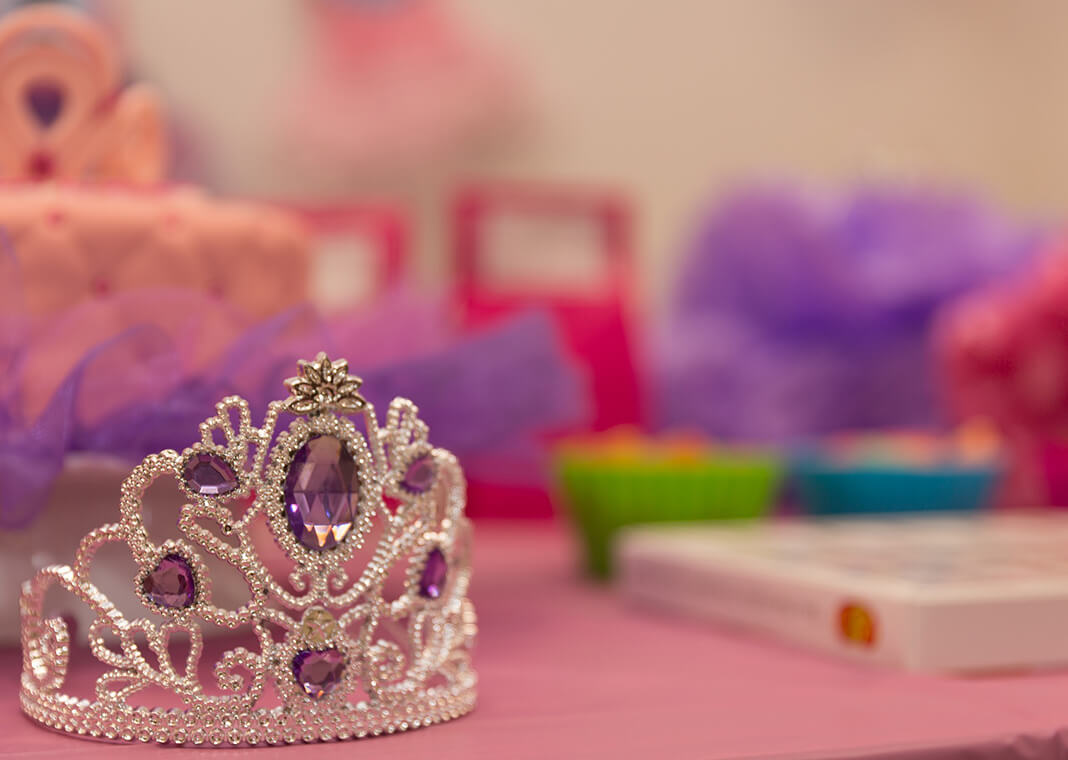
This post is based on Week Five of An Ignatian Prayer Adventure.
“Today is Snow White’s birthday.” This, out of the blue, unprompted, and in the middle of breakfast.
My wife and I stopped mid-cereal-bite and stared at our four-year-old.
“Oh?” I stammered.
“How old is she?” my wife asked.
“No, wait. It’s Aurora’s birthday.” Our daughter nodded to herself. “She’s turning four, like me. No, five.”
My wife and I shrugged. What could we do but bob our heads in agreement?
“We’ll have to have a party,” my wife offered, chewing it over along with her corn flakes. “We’ll have to celebrate.”
“All my princesses are coming,” our daughter said, matter-of-factly, waving her spoon in the air. She rattled them off: Elsa, Anna, Ariel, Belle, Rapunzel, Merida—you get the picture.
We have a lot of princess parties. It’s always some royal’s birthday. And that same four-year-old can often be found wearing a princess dress: rain, snow, sleet, or hail, school day or bedtime. Her little sister has eagerly followed suit.
Disney’s Moana was our entry point into the world of princesses. We were looking for a family-friendly film that showcased a strong, female lead. Our eldest was enchanted. And we soon found ourselves tripping over Frozen, Frozen 2, Tangled, Rapunzel’s Tangled Adventure, and one night I accidently showed her Brave, which is really a quite terrifying film for a child.
My wife and I hadn’t planned on raising two little princesses. But there’s something about a princess, about being a princess, that appeals to them (Disney’s marketing notwithstanding). There are the dresses, of course—though we insist that princesses also wear pants—but there’s more.
Courage, resilience, quick-thinking, loyalty, independence, humor, and kindness. These are the values we try to point out to our girls as their heroes beat villains with frying pans and consort with talking crabs. Look at what they stand for.
And so, I think it’s a small victory that our daughter’s “wall of bravery” features a number of princesses. These women, fictional though they may be, inspire her, comfort her, and remind her to be her best self.
“All my princesses,” she says, and that usage of the possessive, “my,” always strikes me. She doesn’t own them, of course, but seems to feel as though she owes them some degree of loyalty, and that they are loyal in turn.
The imagination of a four-year-old.
Yet I think of Thomas’s words to Jesus: “My Lord and my God!” (John 20:28) The exclamation isn’t about possession but perhaps the desire to possess something of what that relationship points to, what it might manifest, Gospel values.
At this juncture in our Ignatian Prayer Adventure, we hear—and respond—to the Call of Christ the King. We also hear Jesus call the disciples, and we consider what types of people we hope to be as we do the work of the Gospel.
These are all meditations on values. What values inspire us? How do we desire to manifest them to the world? How does our God draw us near and send us forth?
Jesus, our friend, manifests the love of God and the mission of God’s dream most clearly in our world. We, in turn, are invited to participate in that mission. How might we make it our own?
I like to think that a few princess parties—focused on the bravery and other positive qualities of these fictional royals—might also give us a taste of Gospel values leading us closer to Christ the King.
Image by PawinG from Pixabay.

Nice and interesting observations. Beautifully put in words. Thanks Eric.
These wonderful stories have been so important to instilling virtues in kids for decades. Through their accessibility and appeal, they reach kids on a very personal level and have the power to do so much good. The way you describe its manifestation in your daughter is both innocent and beautiful. Woe to those at Disney and elsewhere who have chosen to use that reach to instill values that corrupt. God speed to parents and others with the courage to stand up against it.
Belle would’ve been my girl. She read. She was a regular person. Not a princess. Like Army your says “don’t call me sir,I work for a living”
Eric, thank you for once again taking an everyday incident in family life and bringing it into Ignatian spirituality and Gospel values. You provide food for thought in a way that is readily digestible. Blessings!